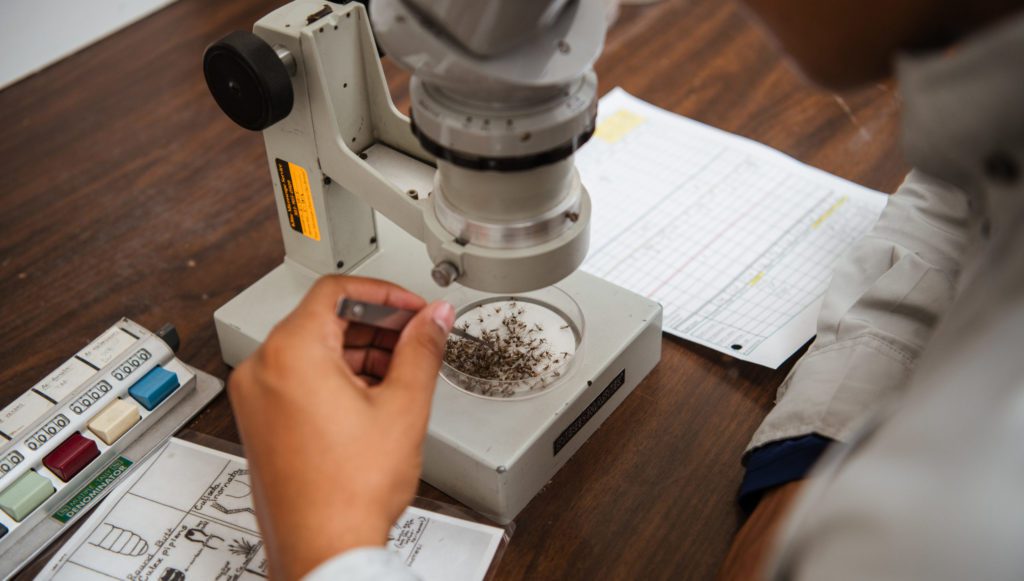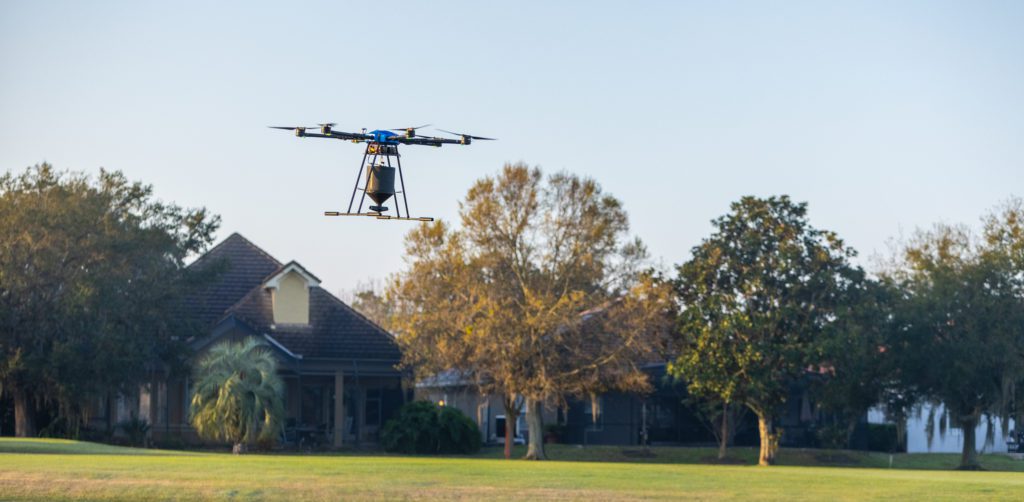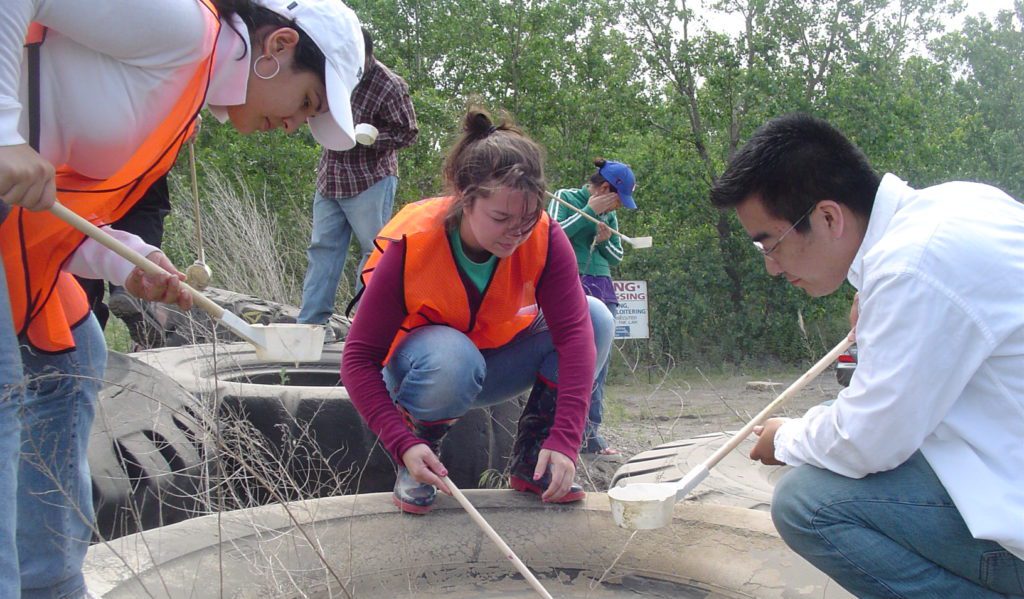Understanding Integrated Mosquito Management
Mosquito — the eight-letter word that no one likes to hear or, even worse, be around. Community members can rely on several strategies to limit their itchy bites and thwart the pests – from insect repellents to reducing breeding habitats. However, these approaches alone will not produce lasting results or provide insights into the threat level that mosquito-borne diseases pose in your community. The safest, most effective, and long-lasting solution is prevention through a proactive and holistic Integrated Mosquito Management (IMM) program, which targets mosquitoes at all stages of their life cycle, giving your community peace of mind.
A successful IMM program leans on both science-based tactics and educational initiatives:
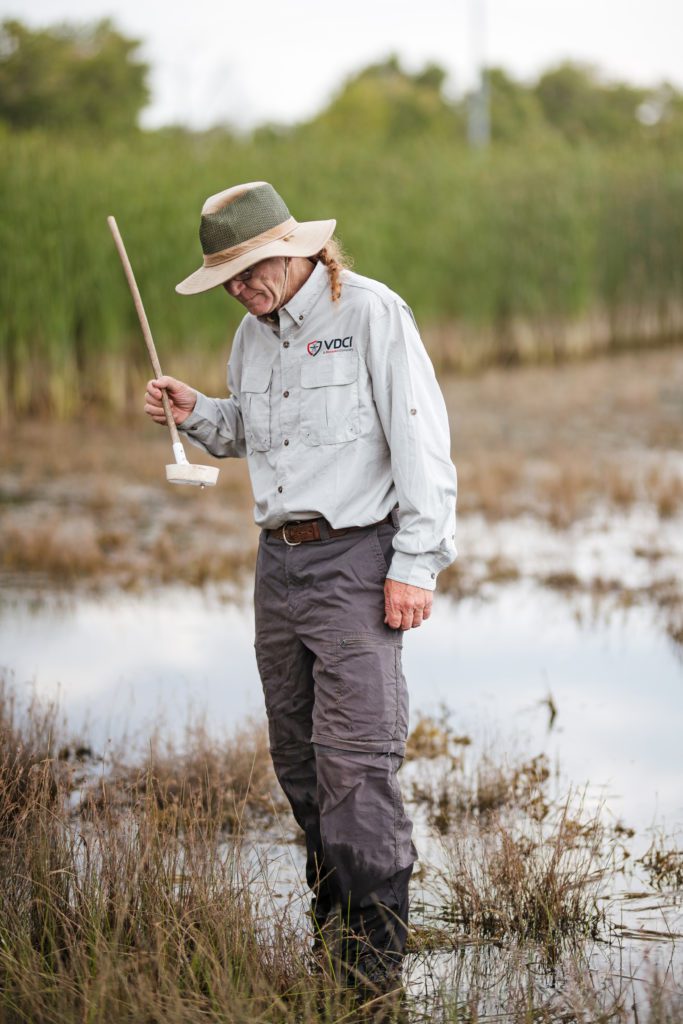 Surveillance & Disease Testing
Surveillance & Disease Testing
Surveillance involves close observation and analysis of mosquito populations, distribution, density, and species composition throughout a targeted area. By gathering extensive data, scientists can create a customized management approach that’s designed to target mosquitoes in the right areas, at the right times, with the right product. This optimizes product use and most effectively reduces the risk of vector-borne disease.
Mosquito management strategies vary depending on their lifecycle stage. For example, mosquitoes require water to lay their eggs, and larval surveillance data allow experts to identify these habitats and treat them using biological control or EPA-registered larvicides.
The management of adult mosquitoes can be more complex. When it comes to adult mosquito surveillance, experts often utilize mosquito traps to collect, count, and identify mosquito species and determine the particular disease risk in a given area. Each mosquito species has unique host preferences, activity times, and habitat use. Certain species are also more likely to carry and transmit pathogens. Correctly identifying species and understanding their bionomics helps ensure they are managed most effectively.
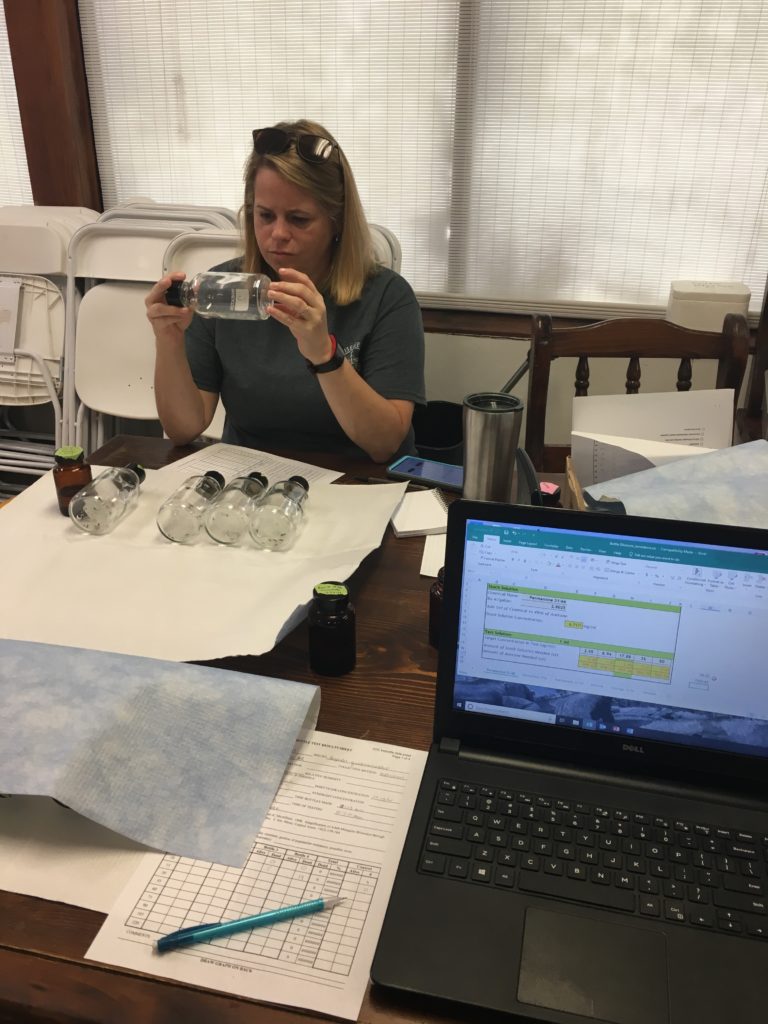 Monitoring for Insecticide Resistance
Monitoring for Insecticide Resistance
An important component of IMM programs is insecticide resistance. Monitoring for chemical resistance should begin at the start of the season and continue throughout the season. Long-term resistance data is valuable because it allows experts to identify trends and modify their mosquito management approach as needed.
Insecticide resistance most often occurs due to overuse or overreliance on a single class of products. The continued use may reduce population sensitivity and eventually cause selection for resistant insects. Irresponsible product use by homeowners and agriculture can undermine mosquito control efforts, waste funds and resources, and increase the risk of an unmanageable disease crisis. The 2016 Zika outbreak in Miami-Dade County after Hurricane Irma illustrated the reality and danger of insecticide resistance.
Technologies Utilized in Mosquito Control
Vector-control specialists rely on many types of tools and technologies to achieve mosquito control. Ground crews utilize backpack power sprayers or Ultra-Low Volume (ULV) spray trucks capable of treating highly specific areas. Equipment is specially designed and calibrated for optimal product distribution, with all data recorded in VDCI’s proprietary database.
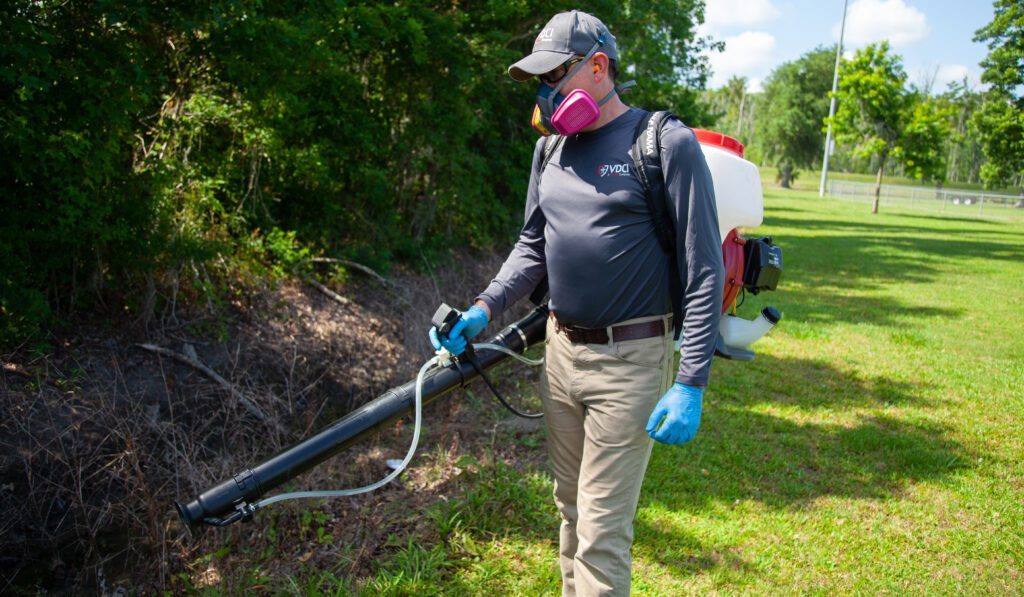
Aircraft can be used to treat habitats that are difficult to access due to flooding, compromised infrastructure, or road closures. VDCI’s aerial fleet utilizes highly specialized technology and incorporates real-time meteorological data to determine optimal application efficacy.
In addition to specialized aircraft, VDCI also utilizes state-of-the-art drones (unmanned aerial systems) that are programmed with advanced GPS technology to map target sites and ensure the precise application of liquid or granular products. Drones bridge the gap between ground and plane applications and allow for wide-area coverage of previously unreachable terrain.
Mosquito management initiatives backed by science and modern technologies can be highly effective, but a lack of public awareness can ultimately limit the success of these efforts. The role of public education in an IMM program cannot be overlooked. Not only will informed citizens better protect themselves from vector-borne diseases, but they can also assist in removing mosquito habitats and reporting areas of concern.
Public education starts with establishing strategic partnerships within the community. VDCI partners with health departments, schools, churches, and other community groups to share accurate information and strategies to support city and state governments or mosquito abatement districts. Community members are taught to remember the 4 D’s:
- Defend – Protect yourself by using an EPA-approved repellent.
- Dress – Wear light-colored clothing, closed-toe shoes, long sleeves, and long pants when spending time outside.
- Drain – Mosquitoes need water to complete their life cycle, and even something as small as a bottle cap can hold dozens of mosquito larvae.
- Dusk & Dawn – Stay indoors during these times of day when mosquitoes are most active.
There is no one solution to control mosquitoes. IMM programs are complex, customized, and ever-changing. Success is best achieved by merging surveillance and monitoring efforts with advanced knowledge and technology. And the better the community understands its role in that equation, the more favorable the outcome can be.
Contact Our Experts
Contact, or call, our experts at 866.977.6964 so that they can help you develop a custom IMM program to meet your community’s needs.
Since 1992, Vector Disease Control International (VDCI) has taken pride in providing municipalities, mosquito abatement districts, industrial sites, planned communities, homeowners associations, and golf courses with the tools they need to run effective mosquito control programs. We are determined to protect the public health of the communities in which we operate. Our mosquito control professionals have over 100 years of combined experience in the field of public health, specifically vector disease control. We strive to provide the most effective and scientifically sound mosquito surveillance and control programs possible based on an Integrated Mosquito Management approach recommended by the American Mosquito Control Association (AMCA) and Centers for Disease Control and Prevention (CDC). VDCI is the only company in the country that can manage all aspects of an integrated mosquito management program, from surveillance to disease testing to aerial application in emergency situations.


